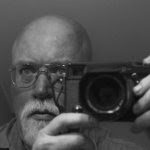Are Digital Cameras Improving Photography?
Is the advent of good digital cameras improving photography? On the surface, the majority of people with digital cameras would probably concur. And in some ways, it has. Several years ago, there was a fellow who frequently posted his work on the web and advertised it to the Leica Users Group. The only consistency in this man’s work was that it was always dreadful. Some of the folks on the LUG tried to give him suggestions for improvement (always ignored), and finally he was flamed off the LUG as a troll. I don’t think so. I think he was just a terrible photographer. But something did improve his images. He bought a digital camera, which did his focusing, his exposure control, and whatever else a digital camera does on “Program” mode. My reaction? That’s better…now some of his pictures are in focus. Just about everyone who didn’t know how to compose a decent photo does better with digital than with their old point and shoot film camera. But is their photography (technically speaking) any better? I wonder.
I noticed a similar phenomenon back in the mid-1980’s when the personal computer was in its most rapid growth phase. I recall reading an issue of PC that tested literally dozens of available word processing programs. Everyone was waiting for the next upgrade, the next peripheral, the next printer. Everyone was truly excited about this new tool. I was teaching college during the personal computer boom, and I saw term papers go from being sloppily-typed and covered with liquid paper to being fully justified, perfectly formatted masterpieces. Until you read them, you could get the impression that the term papers written on the computer were better. They were worse, much worse. They looked better. But they were worse. Why? I suspect that they were composed at the computer, printed, and submitted. No rough draft, no note cards, no working at the library. But the printout was really impressive. From a distance, it looked like a fine piece of research. We had a critical paper shortage in the computer labs because students would type one paragraph, print it, admire how good it looked, and move on to the next paragraph. Personal computers didn’t improve anybody’s writing; it just made the finished product look better.
A digital camera gives me the same cynical feeling. You aim it in the direction of a subject, make sure that the setting is on fully automatic, press the shutter release, and wait for the results on the LCD screen two seconds later. When you see that the image wasn’t so good (but that you have sufficient memory for 624 more shots) you start firing at will. Chances are something will in there will look good. In the world of 9mm street shooting (not street photography with a 9mm lens or 9mm film…shooting at people with 9mm pistols), a similar mentality emerged when Beretta and Glock started making staggered magazines with 16-17 bullet capacities. The bad guys and the good guys started pulling the trigger more and hitting their intended targets less, a tactic known as “spray and pray”. Not good marksmanship.
I have to admit that I have a collection of digital cameras, and that they have lots of features that should make photography easier. But I get burned out trying to figure out what each setting means, no less looking at a histogram on the LCD while trying to compose a subject. Sure, the program setting on the digicam is going to take care of ten different things that will impact what this image will look like. But do I have time to look through the viewfinder and think about whether I agree with how the camera is going to handle each of those ten parameters (or if I should go to another setting)? Nobody does, especially if the subject is moving. No, you push the shutter button until the buffer fills up and hope for the best. I want to control about four things, field depth, focus, the amount of light hitting the film, and framing. I can handle those four parameters; they’re almost instinct now. Would I come out on top in a shootout with another photographer if I had a Leica M6 and he had a Nikon dSLR? Maybe not. But I would have more fun and be more satisfied with the effort than if I had a Nikon dSLR. And isn’t that why I picked up this avocation in the first place?


<< Home